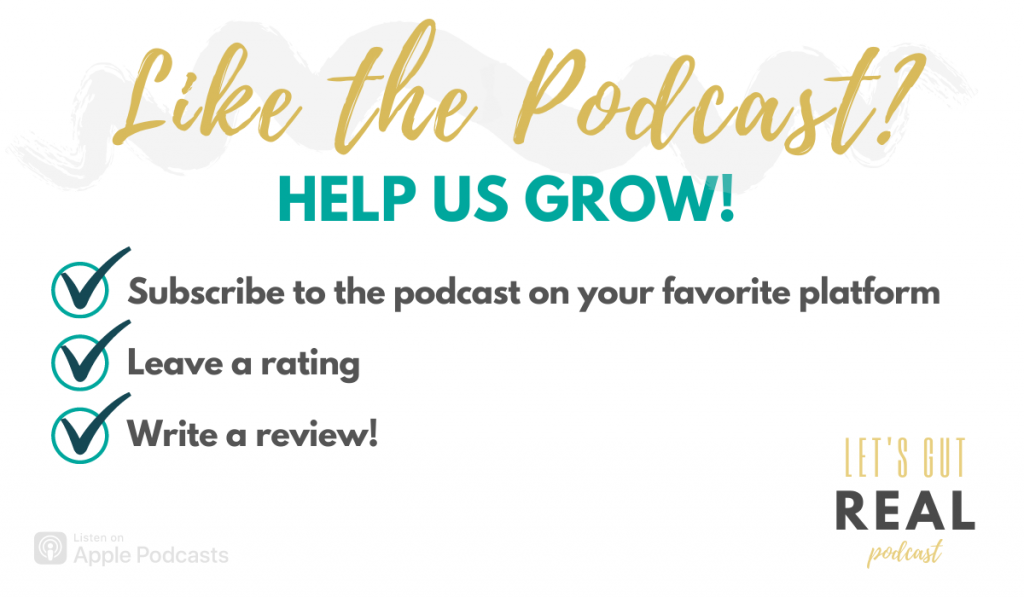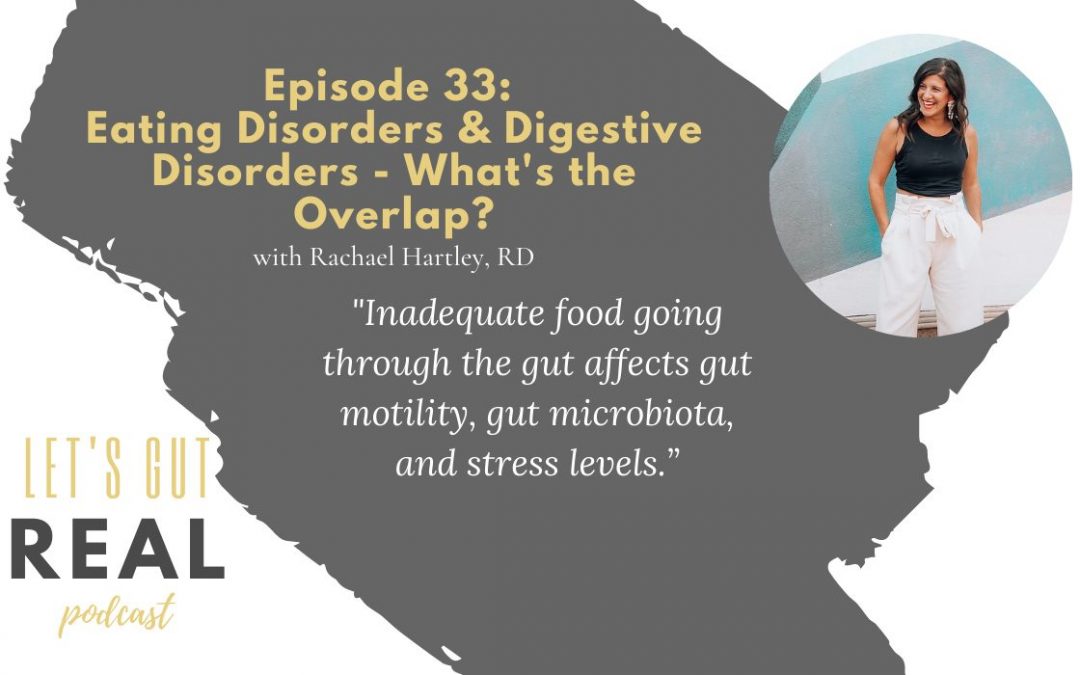There is a marked prevalence of digestive symptoms in ED and disordered eating. Today, I interview RD Rachael Hartley who specializes in disordered eating and healing from chronic dieting, IBS and other digestive disorders, and women’s health. We discuss how under-nourishing, which can arise from restricted eating can lead to slower digestion, exacerbate gut symptoms and lead to further restricted eating patterns.
Nutrition Pearls for Disordered Eating
Disordered eating considerations in IBS:
- It’s not always easy to identify who is at risk for an eating disorder
- Restrictive diets can be helpful for some people, but dangerous or harmful for others
- Consider starting with ensuring dietary adequacy, or mindful and intuitive eating strategies
- Consider the impact of a weight-centered practice paradigm
- Know that the high incidence of IBS and disordered eating occurring together doesn’t mean that every person who has IBS has an eating disorder
- Part of the process of recovery from eating disorders (ED) is working through the sensations of discomfort in order to re-nourish the body which can lead to digestive symptom improvement (but isn’t a guarantee! IBS can still be present when eating disorders are resolved or managed)
- Consider the difference between feeling physically uncomfortable and emotionally uncomfortable
Today, I interview Rachael Hartley, RD, LD, is a Columbia, SC-based nutrition therapist, certified intuitive eating counsellor and nationally-recognized food and nutrition expert who is passionate about helping others rediscover the joy of eating and foster a healthier relationship with food.
She is the founder of Rachael Hartley Nutrition, a weight-inclusive practice where she specializes in disordered eating and healing from chronic dieting, IBS and other digestive disorders, and women’s health. She also runs the popular blog The Joy of Eating, where she shares practical intuitive eating advice and non-diet recipes and is featured regularly in national media outlets. Rachael also presents regularly about intuitive eating and non-diet nutrition to professional audiences and the general public.
We talk about:
- How Rachael became interested in the field of eating disorders
- The prevalence of digestive symptoms in eating disorders/disordered eating
- Some screening/red flags to consider when working with clients with IBS
- How to treat digestive symptoms in a patient with eating disorders
- What role does the gut-brain connection play in cases of IBS and eating disorders?
- What other interventions we can implement that doesn’t require restricted eating
- What is the link between feeling stressed about eating and the reaction our gut experiences as a result of that?
- Who is a good candidate for low-FODMAP diet?
- What are the risks of the low-FODMAP diet?
- Pathologizing bloating
- What about gut directed hypnotherapy?
- Does medication have a place in IBS management?
Connect with Rachael at https://www.rachaelhartleynutrition.com/my-book-gentle-nutrition or on Instagram @rachaelhartleyrd or on her Facebook as well!



Recent Comments